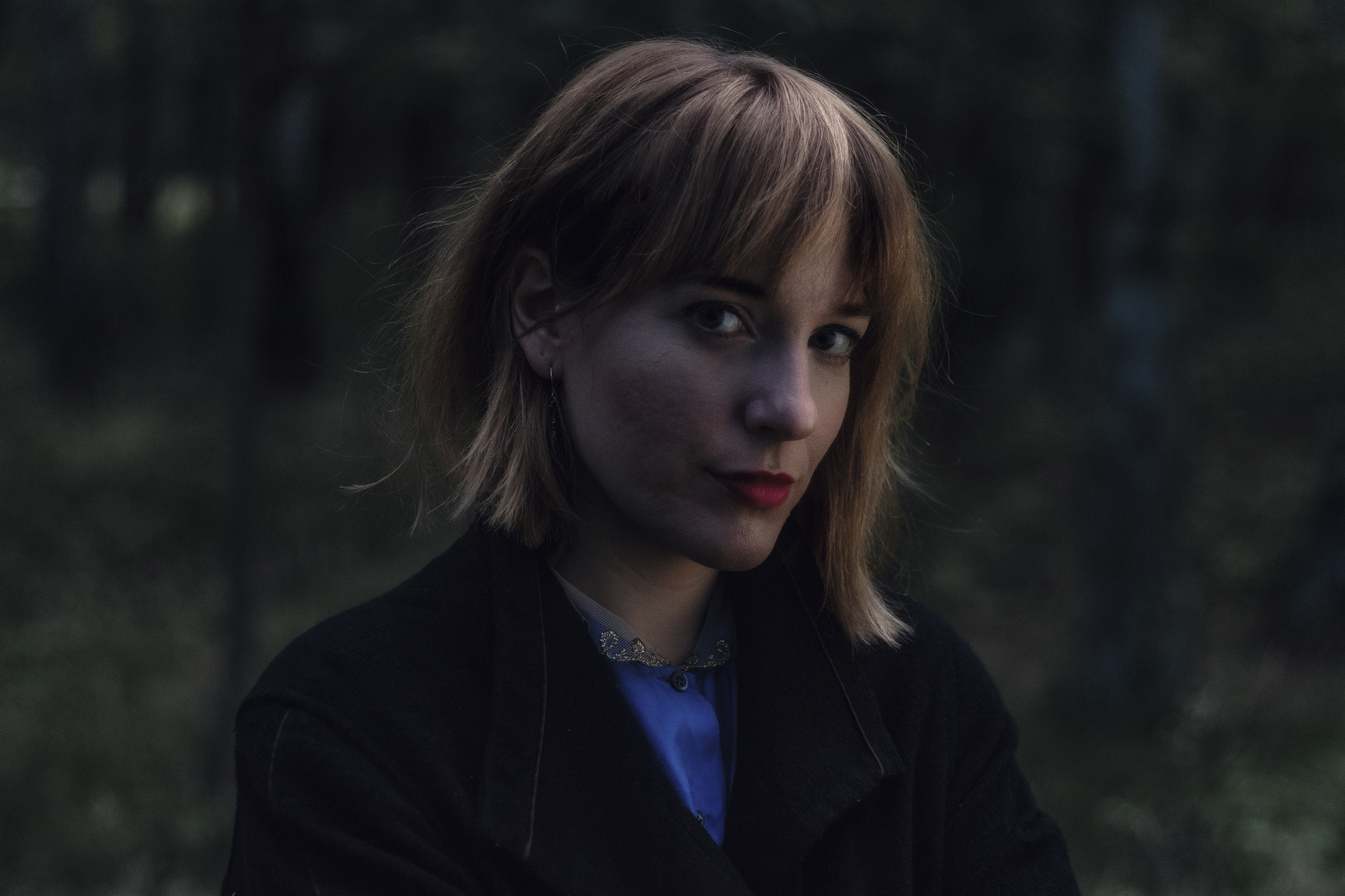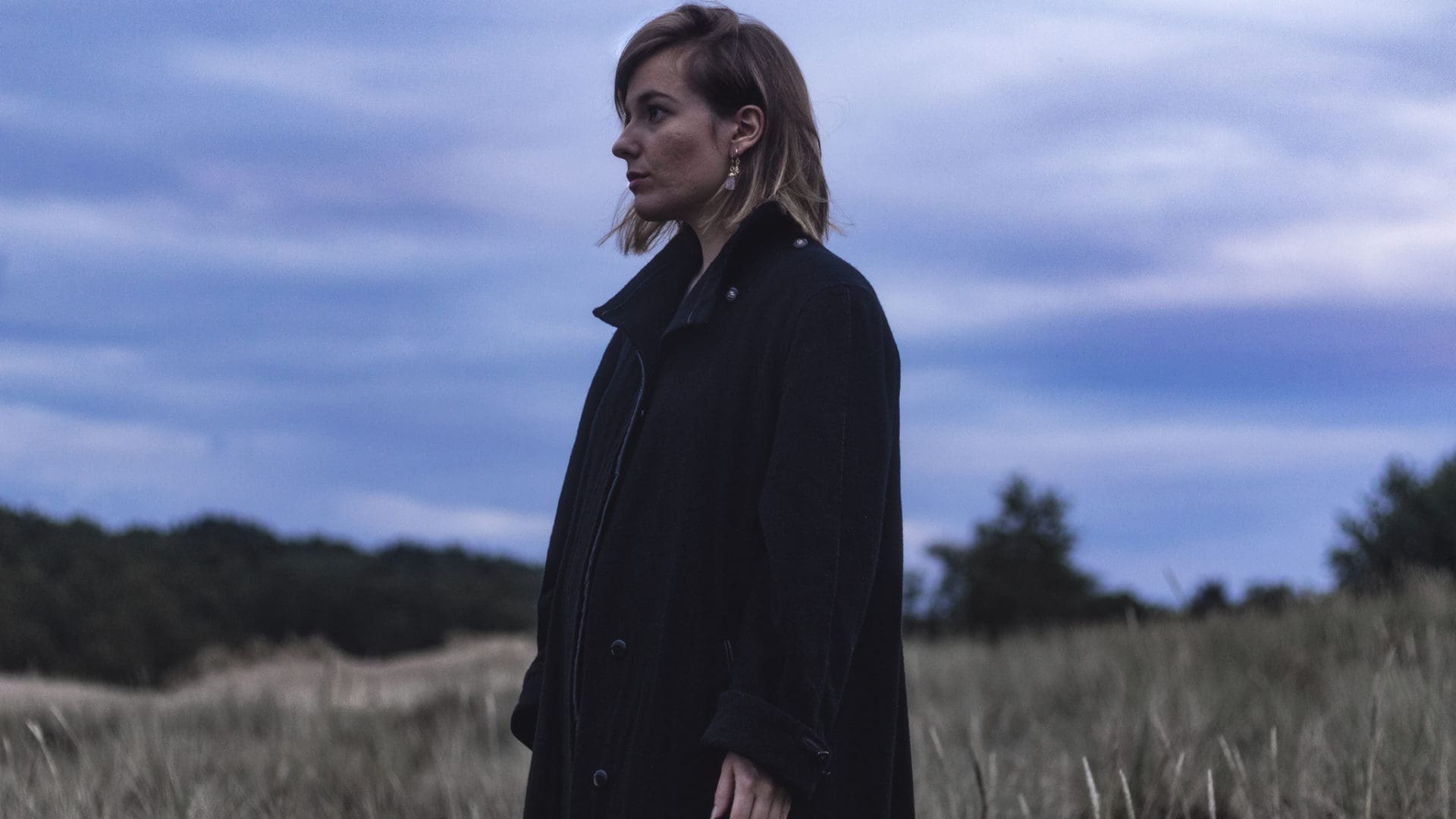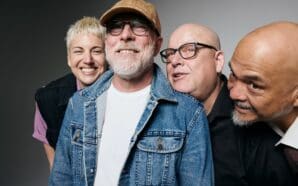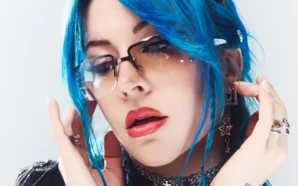Ironically, lùisa’s third LP, New Woman, actually has the German singer/songwriter and multi-instrumentalist exploring a bevvy of vintage sounds. The album, which deals with female-oppression-turned-empowerment on both a personal level and a sociopolitical level, borrows sonic sentiments from a lot of the best intellectual pop of the 1980s, making for something as quirky and danceable as it is potent. lùisa’s already released nearly a half-dozen videos from the album and plans to spend the foreseeable future continuing to get it to as many listeners as possible. She recently took some time to tell me about all of this.
Izzy: Your third album, New Woman, has been out for about a month now. Have you had any favorite reactions to it, whether from critics, fans, or just friends?
lùisa: I was really happy and excited to see that New Woman was rated with four out of five stars by the Rolling Stone magazine. But in general, I appreciated all the great reviews and I was so honored by the overwhelming feedback from fans and friends who said that they love the album. This truly means a lot, especially in times where touring is still difficult due to the pandemic.
Izzy: How do you feel like it compares to your first two full-lengths? Did it feel like an organic next step, or were you trying anything new on this one? Or, was it a bit of both?
lùisa: I think it was a bit of both. My first album is kind of a folky album. I was 19 at the time and just recorded my first songs with my acoustic guitar– it’s quite raw in a way. My second album, however, Never Own, has a very different sound – it is far more arranged and produced; electronic beats, electric guitars and ethereal synths are part of the arrangement, and some elements of that second album already reflect my love for an ‘80s sound aesthetic.’ So, on the one hand for New Woman, it felt like an organic next step to define this sound even more and to keep sharpening my songwriting. On the other hand, I made a very clear decision to try writing more groove-orientated songs and work with straighter beats, simply because I listened to a lot of music in the album process that featured these elements. I also wanted to work with live grooves rather than electronic beats. So, these were conscious decisions to try something new.
Izzy: Not to detract from your own music, but people always make such a big deal about debut albums and then sophomore albums, but rarely do we talk about “third albums,” so I’m curious if you have any favorite third albums? The Queen is Dead by The Smiths, Parallel Lines by Blondie, and Dig Me Out by Sleater-Kinney are the first ones to come to mind for me.
lùisa: I think you are so right. Debut albums are always the biggest deal for people. Still, I had this guy coming up to me right after I had released my debut album and he said, “Can’t wait to listen to your third album, third albums are always the best.” That phrase really stuck with me, and also after that I heard about this myth a lot. I really love the album Teen Dream by Beach House, which was their third record, I loved Visions by Grimes, and I also enjoyed The Reminder by Feist.
But I think in general I have a lot of favorite albums which were released rather later in the artists’ careers, like Rumours by Fleetwood Mac or Lost in the Dream by War on Drugs (It was their 4th album, I think.) or some later releases by The Cure or Talk Talk.

Izzy: What would you consider to be your most significant influences, both musical and otherwise?
lùisa: My musical influences kept changing over the years, but for this last album I think Fleetwood Mac, Sade, and War on Drugs were big influences. I guess I used to listen to recent indie music more, but for this record I kind of kept diving into albums from the ‘80s or into ‘80s-inspired’ records.
When I started to make music, my older brother was a big influence as he kept providing me with great albums and encouraged me to learn the guitar and sing when I was a teenager.
I think that spending time in nature really influences and inspires me whilst writing – I wrote four songs of the new album under the same olive tree in Italy in one summer.
Also, reading poems and reading lyrics by other artists really inspires me. I studied French and Italian literature and I think it influenced me in a sense that I analyze structure and form more of pieces of art in general and also structure my own creative process more, e.g. reflecting on semantical fields or prosody while I write.
Izzy: I really like all of your recent music videos, especially “Come Around,” so I have to ask, what is it that inspires the visual elements of your work?
lùisa: Thank you so much, I’m really happy that you like the recent videos. I think my inspiration comes from watching a lot of music videos and movies, but it’s really hard to tell which artists influenced me exactly. I love Caroline Polachek’s music videos or the visuals from Christine and The Queens, for example. And yes, then again, grainy ‘80s visuals and performance videos.
For my own music videos, I created moodboards first in which I tried to capture all the images I saw in my head from when I wrote the song. I also think of the general film aesthetics, colours, a plot or settings that would reflect the vibe of the song as well as styling. I often look at the verbs of the lyrics of my song again because it helps me realize which movements could be translated into images, too.
For “Come Around” and “New Woman” I worked with the great director/filmmaker Ivan Boljat. For the videos of “Deep Sea State of Mind” and “Burn Out” I worked with directors/filmmakers Jonathan Junge and Jakob Michal. They are all professional filmmakers, so they really took my own vision to another level. Exchanging ideas on the concepts and creating these little movies together was such an inspiring and fun process.
Izzy: Is there anything you think is especially important for fans and potential fans to know about you, your aim as an artist, or your process of creating music?
lùisa: I think something that rally shapes my art is the core belief that you can do 80% of the work yourself, and I really need this holistic approach for my own music. Writing, arranging, producing, singing, and playing instruments are different pieces of the same greater picture for me, as well as visuals that correspond with the music.
It’s also quite important to me to have artistic control over what I do – this was kind of intensified by experiences of hierarchy with some guys in this still male-dominated music industry. For my own music I won’t make big compromises, and I would always rather not release a song I’m not entirely happy with than release a song just for the algorithm or the sake of a release. I may even sound a little old-fashioned here in the big age of streaming singles, but a well thought out album and sound aesthetic is something I really enjoy. My aim as an artist is touring a lot, hopefully also internationally – I just love to perform live and meeting new audiences.
Izzy: Finally, what are you hoping and planning for the rest of 2021? Anything you’re especially excited about?
lùisa: I’m really excited for the live shows I will hopefully be able to play with my band this year! There are a few summer festivals planned and a tour in October, and I can’t wait to be back on stage. Other than that, I will keep writing and producing music, of course!








